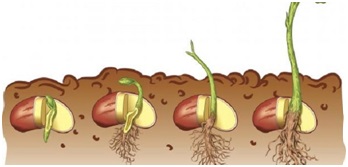 Research Paper By Jennifer Roberts
Research Paper By Jennifer Roberts
(Transition Coach, UNITED STATES)
What does it mean to be cultivated? Cultivating involves nurturing to help grow and working to make something better. To cultivate a person can be different from one person to the next. Oftentimes, the most challenging parts of life involve the most growth, as well as require the most support. This is where my niche comes into play. As a life coach specializing in transition, my goal is to support my clients as they are going through a transition and are cultivated into new people.
My Background
When there are big life changes, the person affected will inevitably change as well. It may be gradual; the changes can sometimes be unseen to the person that is going through these changes. Other times, these changes are as obvious as a full moon on a clear night. Either way, the one thing people going through change will all have in common is: change is hard. Transitions come in all shapes and sizes. Transition can be moving from high school to college, from having a child at home to the child going to school, changing from one job to another, moving from one city to another, or living in one lifestyle to another. Personally, I have experienced several large transitions over the course of 3 years: getting married and moving in with my husband (long-term commitment), becoming a military spouse (lifestyle change), moving from one state to another twice (geographical change), changing jobs twice (professional change), quitting my career (professional and lifestyle change), moving to another country (geographical and lifestyle change). In that list of transitions, I have noted geographic changes, professional changes, long-term commitments, and lifestyle changes. With each of these transitions came an array of emotions and experiences. There was anticipation leading up to the change (preparation phase), stress during the change (the action phase), settling in after the change was made (recovery phase), redefining who I was once the settling phase was near completion (reflection phase), and finally, comfort in this new phase of life (comfort phase). Moving from one phase to the next took time and energy to understand why I felt the way I did (which was mostly feeling exhausted). Upon each transition, came a new version of myself. A cultivated me that has grown from the person I was previously to who I am today through the changes I have experienced. Each of our stories is unique. Every person goes through their own transitions and challenges in their own time. This is why understanding how change can affect each of us is vital. To take it a step further, knowing how to use these transitions to benefit us and how we are shaped can be groundbreaking!
Being Cultivated
I relate a person going through a transition to the plant cycle because a person goes through numerous phases of change and can become a completely different person. Similarly, a plant goes through many phases of change and the result is oftentimes extremely different from what the plant looked like in the beginning. A person going through the transition may feel like a seed. Alone in the darkness. A small being in this big world that is full of potential and possibilities. It takes time to absorb new surroundings, get feet on the ground, and form roots in a new place. This is all happening within a person and on his/her own terms and timeline. After a while, the person grows stronger. He/she starts to take in the new surroundings, similar to a plant peaking above the ground and into the sunlight. Confidence is gained in the new place. At this point of transition, it is important to note the incredible amount of transformation a person has gone through that no one else potentially has seen. Outsiders will see the sprouted you, similar to the third phase of the plant that is shown in the image following this paragraph. They probably have not seen all of the time, energy, and work you have put into handling your transformation and transition up to this point. The road that has led to you becoming a sprouted, new version of yourself has likely been a tough road that is oftentimes less traveled. As a coach, it is my job to inquire about the growth a person has experienced thus far. Through this inquiry can come reflection and acknowledgment of the work a client has done and how far he/she has come that the client may or may not be aware of. After reflection on the growth that has happened thus far, a plan can be made to be able to handle the obstacles that are coming next. This is especially useful if he/she is feeling overwhelmed about what the future might hold.
 Figure 1: Plant Growth Cycle
Figure 1: Plant Growth Cycle
How to deal with the transition
It is easy to feel overwhelmed when dealing with big life transitions. Individually, smaller events that wouldn’t normally feel daunting can seem to pile onto each other. When these small events happen simultaneously, they can feel like they are too much to handle. Learning how you specifically can handle transition is an important skill. This is especially true because life can throw curveballs and you may not know when the next big change may come your way. Psycom gives a list of a few ways a person can deal with change and become resilient. They are as follows:
Evaluate your level of control
Understanding what you can and cannot control can be either a paralyzing or a weight lifting realization. When going through times of change, it is vital to set aside time and energy to evaluate what is in your control. For example, if you are moving to a different country, you have control over purchasing your plane tickets. You do not have control over the weather on the day of your flight, so there is no use in checking the weather for that date every day leading up to your flight and worrying about it. Weather can change in an instant. What you can control is your backup plan in the case of a canceled flight due to weather. Understanding what you can take responsibility for and acting upon that can be empowering. It can allow you to stay focused on your goal and give you a sense of ownership instead of possibly feeling like a victim of circumstances.
Practice Self-Care
During times of change, keeping the practice of self-care and having a routine can help immensely. Self-care can look different for each person. For one person it might be going for a walk outside to soak up sunlight and to get exercise. For another person, it might be taking an hour out of the day to read a book. Whatever feeds your soul and brings you peace in times of high stress is self-care, and this small bit of routine can make a huge difference.
Check your thought patterns
“Whether you think you can or can’t, you’re right,” Henry Ford. During the chaos of transition, it can be easy to become lazy with your thoughts and what you let into your mind as a truth or a self-limiting belief. However, this is one of the most important times to not let yourself become lazy with your thoughts. This is a time to go to battle for your mind and what you let yourself think. Times of transition are new beginnings, and it is up to you to decide if this new beginning starts on a good foot or a bad one. This can be a time to step up to the challenge or shy away from it. The thing to remember is that every step in this process begins with you and where your thoughts lead you.
Be in the present
It can be easy to spend your time daydreaming about the future or reminiscing on the past, but remaining in the present is important during times of transition. Focusing on who you want to be and following through on that idea from the get-go can have a lasting effect. Creating small habits is one way to maintain being in the present in small increments. If you find yourself not able to stay on track because you are distracted with thoughts about the past or future, determining a few small activities to work toward your goal each day can help you gain a rhythm. Having these habits also can reinforce you to become the person you want to be.
Find Your Priorities
To reinforce the idea behind finding small habits to keep you in the present, determining your priorities during times of transition can help you find your new rhythm as well. Taking time before, during, and after a big transition (when possible) to evaluate what needs to be a priority and what you want to be a priority is proactive work that can lead to ease of transition. If you have priorities or goals, you can take it a step further and determine when and how these goals can be met. Once these goals are met, there is usually a momentum of productivity that follows. For example, if you moved to a new town, a priority could be to find a grocery store you really like. Once you find the grocery store you really like, you can purchase the food you want and start cooking for yourself. If cooking at home is important to you, doing the work to find a grocery store you like could be a priority that would lead to a very rewarding outcome. This is one step toward making a new town feel like home.
Reflection
Times of transition allows you to make changes that you might have wanted to make but have not gotten around to. When there is the momentum of things in motion, there is a natural drive within us to continue that motion into other aspects of our lives. Harness this momentum to your favor. Brainstorm the areas that you want to see a change, and then use the momentum you have of the changes around you to drive other changes for yourself. You do not have to wait until there is the momentum of a huge change in your life to create these changes, however. You can take a small step today to look at your life and decide if there is anything you want to change. Is there a habit you want to stop or start? Are you the person you want to be? Do you want to cultivate yourself into a new version of yourself? Within you are a million possible iterations of who you can become. It is up to you to feed that seed properly and allow yourself to be cultivated into the person you want to be when those moments of transition and transformation are knocking on your door.